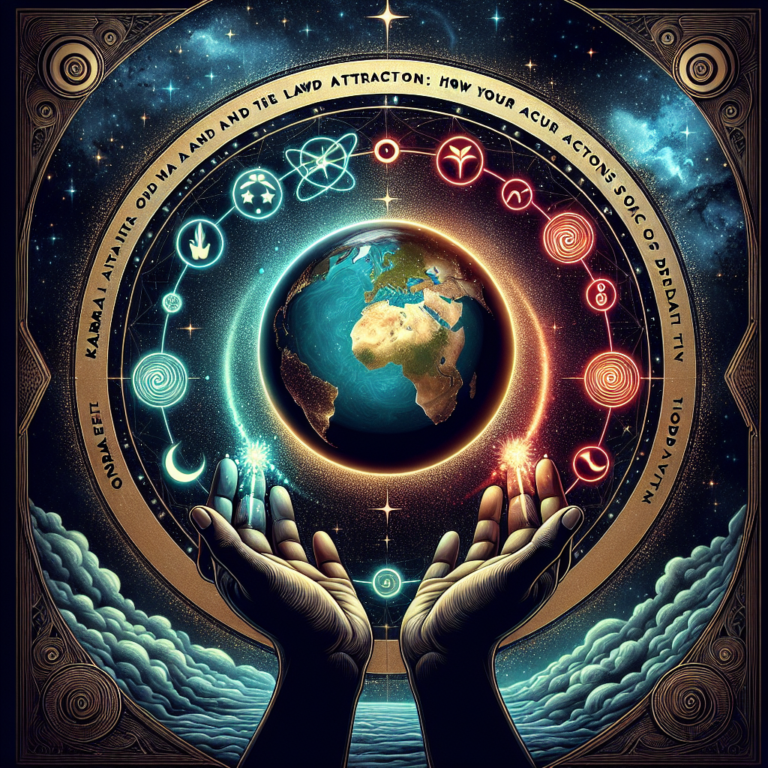Family Karma: Breaking Stereotypes and Building Bonds in the Heart of Miami
In the vibrant melting pot that is Miami, a captivating reality show has emerged that tells the poignant stories of Indian-American families striving to balance tradition and modernity. Titled “Family Karma,” this groundbreaking series has captivated audiences not only for its entertainment value but also for its honest depiction of the South Asian experience in America. Through its rich storytelling, the series is challenging stereotypes and fostering a sense of community among diverse cultural backgrounds.
A New Dimension of Reality Television
“Family Karma” debuted on Bravo in March 2020, presenting an unprecedented view of the lives of young Indian-Americans navigating friendships, relationships, and family expectations. Unlike many reality shows, which often magnify drama and conflict purely for entertainment, “Family Karma” emphasizes authenticity, humor, and the complexities of cultural identity.
The show follows a group of friends from Miami, including Vishal Parvani, Amrit Kapai, Rish Karam, and more, as they handle life decisions ranging from career choices to marriage while being funneled through the lens of their overprotective, traditional families. Family members often appear in the series, further exploring the intergenerational tensions and challenges associated with living in a diaspora. This narrative resonates with many viewers who have grappled with similar experiences in their own families.
Breaking Stereotypes
“Family Karma” stands out in its effort to dispel stereotypes often associated with South Asian communities. Too frequently, television shows portray Indian characters as overly studious or excessively focused on academic achievements. “Family Karma” shatters these clichéd images by showcasing the vibrant personalities, richer stories, and varied lifestyles of its cast members.
The show represents a more nuanced and real picture of South Asian culture, going beyond mere stereotypes. For example, the cast members navigate personal and family dynamics that explore love, LGBTQ+ representation, and mental health—topics that are often stigmatized in many traditional communities. Amrit Kapai, a prominent cast member, stands out as the show’s openly gay character, bringing discussions about acceptance and identity to the forefront. His experiences provide a beacon of hope to many struggling with similar issues, showing that one’s sexual orientation need not clash with cultural expectations.
Building Bonds
At its core, “Family Karma” emphasizes the importance of bonds—not just familial ties but also friendships that provide support and understanding in an ever-changing world. The group of friends demonstrates how cultural background can strengthen relationships but can also pose challenges. The show explores themes of loyalty, love, and the power of communal support that resonates with audiences of all backgrounds.
The characters showcase the beauty of familial connections, from the prideful moments to the strained ones. Viewers witness the emotional investment in weddings, religious celebrations, and other significant life events. By highlighting these moments, “Family Karma” promotes a sense of unity and understanding, encouraging viewers to appreciate the importance of relationships and community.
Lessons in Tradition and Modernity
Another compelling aspect of “Family Karma” is its portrayal of the balancing act between tradition and modernity. Many of the characters experience the pressure of maintaining cultural traditions while embracing contemporary American life. This duality is relatable to countless viewers who find themselves in similar situations.
The series addresses generational divides and the evolution of traditions within families. For instance, while the older generation values arranged marriages and adherence to cultural practices, the younger cast members often seek love on their terms. This juxtaposition provides an insightful commentary on how immigrant families navigate the blend of old-world values and new-world perspectives.
Embracing Cultural Identity
“Family Karma” has resonated deeply with South Asian audiences, igniting conversations about cultural identity and belonging. The representation of Indian-Americans on prime-time television helps foster a deeper appreciation for diverse cultural landscapes. The show not only entertains but also educates viewers about Indian traditions, customs, and social nuances.
Through audience engagement and discussions on social media, the show has encouraged viewers to share their experiences related to identity and community. Many have praised the series for validating their stories and providing representation in a prominent medium.
Conclusion: A Pioneering Venture
“Family Karma” is more than just a reality show; it is a testament to the strength of community, tradition, and personal growth in the face of changing societal landscapes. It serves as a powerful platform for South Asian representation, breaking stereotypes, and fostering dialogue around crucial social issues. As the series continues to unfold, it remains a hopeful reminder that maintaining one’s cultural identity does not mean sacrificing individuality. Instead, it highlights the beauty of coexistence, bridging gaps and building connections.
FAQs
1. Where can I watch “Family Karma”?
“Family Karma” airs on Bravo and is available for streaming on platforms like Peacock and Hulu.
2. How many seasons of “Family Karma” are there?
As of October 2023, there are two seasons of “Family Karma,” with a third season reported to be in production.
3. Is “Family Karma” scripted?
“Family Karma” is a reality television series, meaning it is not scripted. However, the show may use storylines based on the real-life experiences of its cast members.
4. What themes are explored in “Family Karma”?
The show explores themes such as family dynamics, cultural identity, friendship, LGBTQ+ issues, and the balance between tradition and modernity.
5. Who are the main cast members of “Family Karma”?
The main cast members include Vishal Parvani, Amrit Kapai, Rish Karam, and several other families and friends whose lives are chronicled throughout the series.
6. How has “Family Karma” impacted the South Asian community?
The show has sparked conversations about cultural identity, acceptance, and representation, providing a platform for South Asian voices and stories in mainstream media.
7. Are there any important lessons from “Family Karma”?
“Family Karma” teaches the importance of maintaining relationships, embracing individuality alongside cultural heritage, and fostering empathy and understanding among diverse communities.
Of course! Please provide more details about the prompt or topic you have in mind, and I’ll be happy to assist you., #Family #Karma #Breaking #Stereotypes #Building #Bonds #Heart #Miami, #Family #Karma #Breaking #Stereotypes #Building #Bonds #Heart #Miami, 1734830900, family-karma-breaking-stereotypes-and-building-bonds-in-the-heart-of-miami





